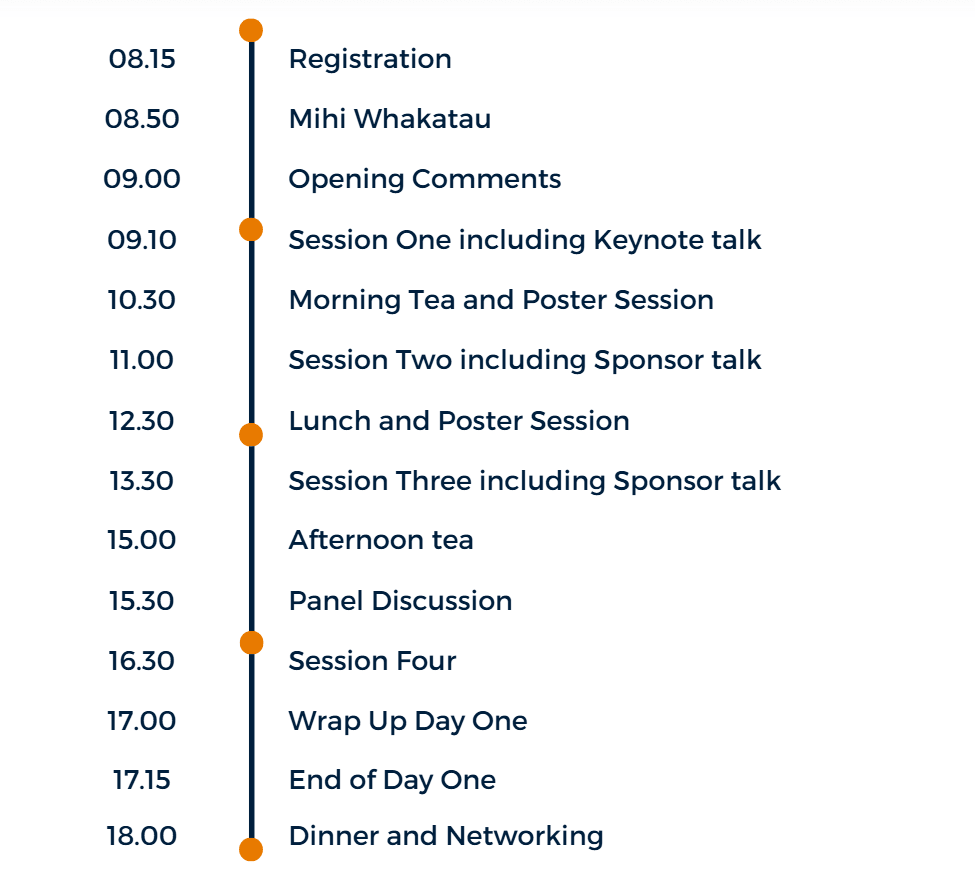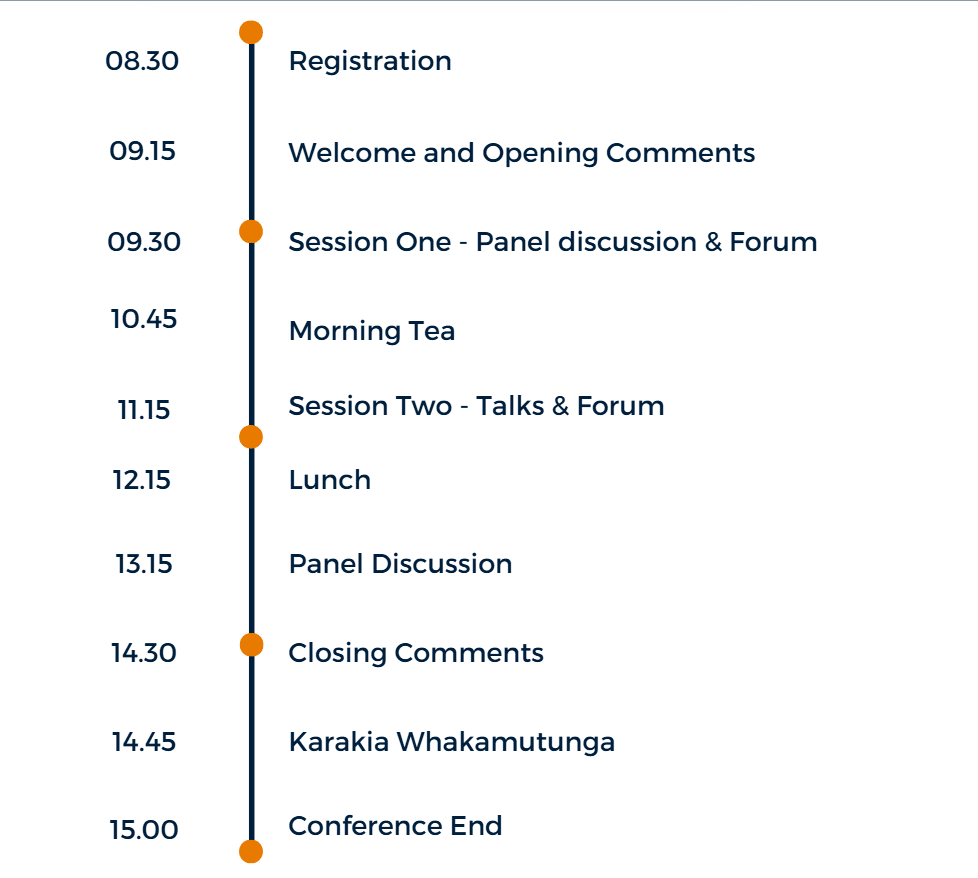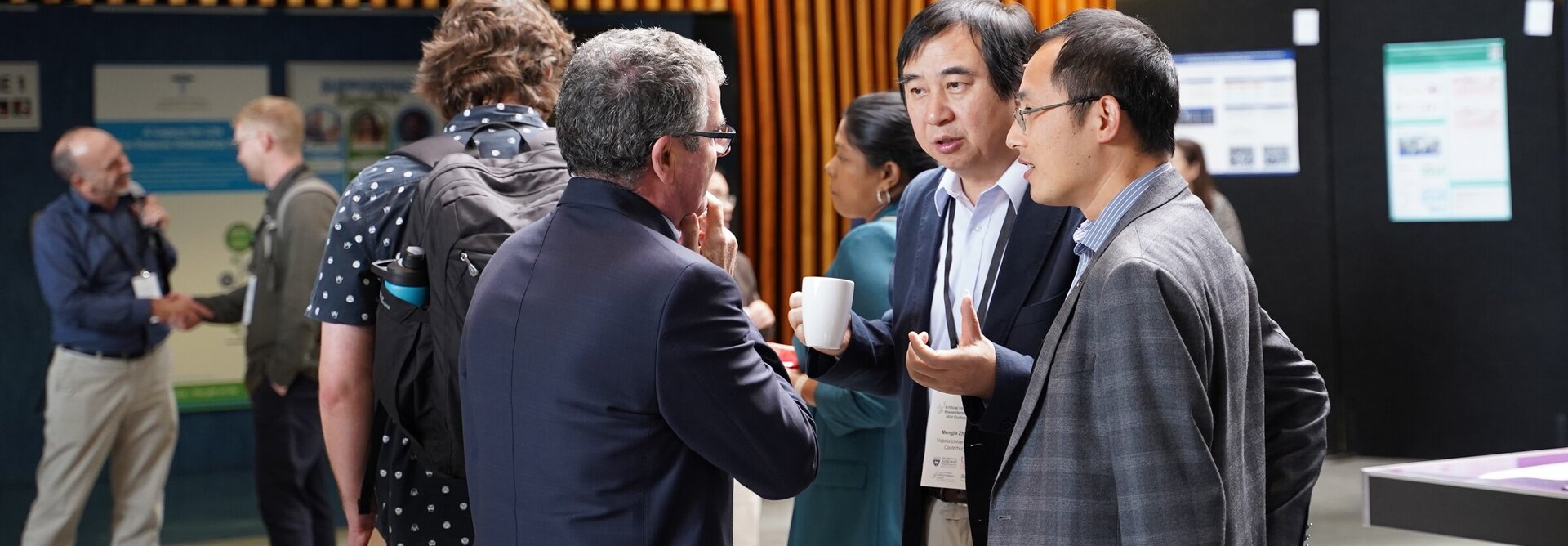A mixture of talks, panel discussions, the opportunity to join in and for Q&A, a PhD forum, and networking
Day One
The program is subject to change and will be finalised on 31 October

Day Two
The program is subject to change and will be finalised on 31 October


